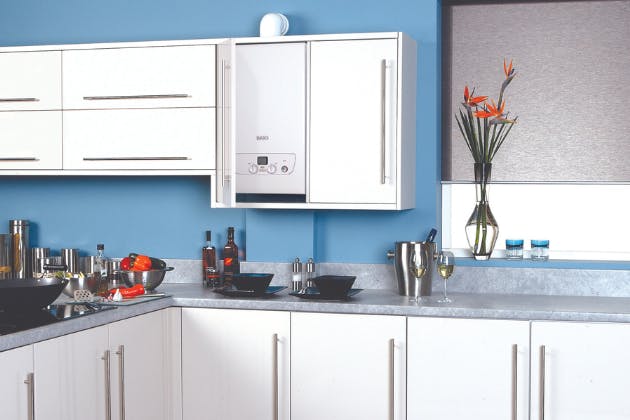Installing a boiler is essential for ensuring that your home or business has efficient heating. Whether you are installing a new boiler or replacing an old one, you must adhere to the correct procedures to ensure optimal performance and safety. In this detailed guide to boiler installation, we will lead you through the entire process, from planning to completion, and provide you with the knowledge and advice necessary for a successful installation.
Understanding Boilers
What is a boiler?
A boiler is a device that utilises water or other liquids to produce heat. It distributes heat via radiators, underfloor heating, or a combination of the two. Boilers are essential for providing warmth during the winter season and are available in a range of types to accommodate a variety of heating requirements.
Types of boilers
There are 3 main types of boilers, these include:
Combi Boilers
Also known as combination boilers, these units provide both heating and hot water. They are compact and suitable for smaller spaces.
System Boilers
System boilers require a separate hot water storage tank, making them suitable for larger properties with higher hot water demands.
Conventional Boilers
Conventional boilers, also called regular or heat-only boilers, work alongside a cold water storage tank and a hot water cylinder. They are ideal for homes with multiple bathrooms and high hot water requirements.
Choosing the right boiler for your needs
Various factors, such as the size of your home, your hot water needs, and your budget, must be considered when choosing a boiler. It is essential to consult with a heating expert or a qualified boiler installer who can evaluate your needs and recommend the most appropriate boiler type and size.

Preparing for installation
Assess your heating requirements
Evaluate your heating requirements prior to proceeding with the installation. Consider the size, number of rooms, and insulation level of your home. This evaluation will assist in determining the boiler's necessary heating capacity.
Sizing
To ensure efficient heating, it is crucial to properly dimension the boiler. Typically, the size is determined by the British Thermal Unit (BTU) measurement. The BTU calculation is affected by factors such as the level of insulation, the number of windows, and the climate in your region. A professional in heating can assist you in determining the ideal boiler size for your space.
Picking the right location
Selecting the best location for your boiler is essential for its performance and upkeep. It should be readily available for maintenance and repair. Ideal installation conditions include adequate ventilation, plenty of room for the boiler and the equipment that comes with it, and simple access to water and gas lines. Consider locating the boiler in a spot where noise and vibration won't be a problem.
Checking regulatory requirements
Familiarise yourself with local boiler installation regulations and codes before beginning the installation process. These regulations guarantee the system's safety and conformity with building codes. Consult with local authorities or a qualified expert to ensure that your installation complies with all applicable regulations.
Post Boiler Installation Maintenance
Selecting the right location for your boiler is crucial for its performance and maintenance. It should be easily accessible for servicing and repairs. Ideally, the installation area should have proper ventilation, sufficient space for the boiler and related equipment, and easy access to water and gas lines. Consider placing the boiler in an area where noise and vibration won't cause disruptions.
Once the boiler has been installed, a regular maintenance schedule must be established to ensure its longevity and efficacy. Here are several essential maintenance tasks:
Bleeding Radiators and System Balancing
Periodically inspect and bleed radiators to eliminate any confined air, which can hinder heating performance. Adjust the supply of hot water to each radiator to ensure that heat is distributed evenly throughout the room.
Regular Boiler Maintenance and Service
Schedule routine boiler servicing and maintenance to keep it operating at optimal efficiency. This includes scrutinising and cleaning the internal components, examining for leakage, and confirming the system's overall functionality. Employing a qualified Gas Safe registered engineer for annual maintenance is recommended.
For a boiler service with our experts here at Chalmers Plumbing & Heating, call our team on 0141 374 0274 or 07580 020343.


